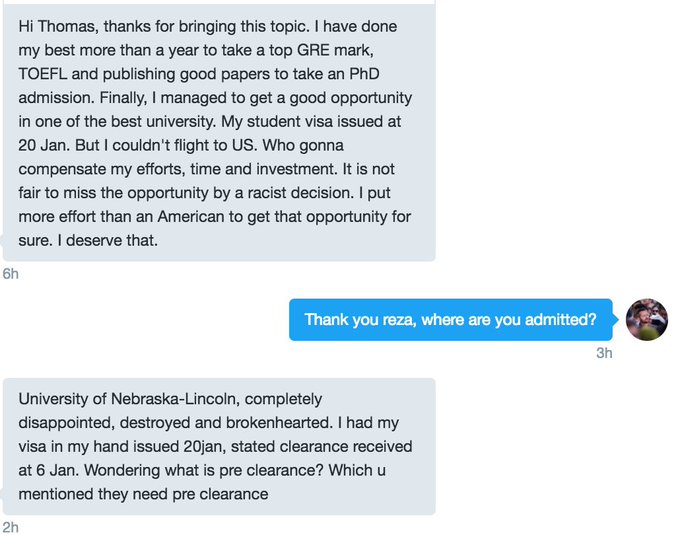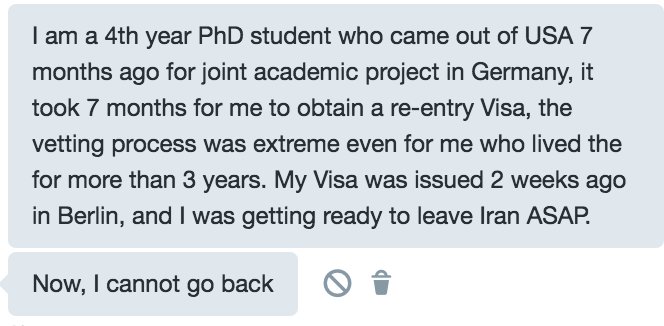University of Michigan Boldly Defies Trump’s ‘Vetting Measures’
The university said in a statement Saturday it isn’t releasing immigration status of its students after President Trump’s executive order.

The University of Michigan on Saturday pushed back against President
Donald Trump’s “vetting measures,” intended, the commander-in-chief
said in an executive order signed a day earlier, to keep “radical terrorists”
out of the country. In a statement, U-M President Mark S. Schlissel said
officials won’t release the immigration status of its students.
“We are currently focused on potential changes to immigration laws,
policies and practices that could affect the status and safety of U-M
students and personnel, particularly international students and those
who may be undocumented,” Schlissel said in the statement. “This
includes several programs and policies that affect international
students and faculty.
“Additionally,” Schlissel continued, “we are working to understand
the implications on our community of the ‘extreme vetting’ executive
order blocking immigration from certain countries.”
Trump’s order bans the issuance of visas and other immigration
benefits to “nationals of particular concern” for 90 days, indefinitely
suspends the Syrian refugee program and bans the resettlement of
refugees from the affected countries for four months. The countries
affected by the vetting measure have Muslim majorities, and include
Iraq, Iran, Libya, Somalia, Sudan Syria and Yemen.
Get free real-time news alerts from the Farmington-Farmington Hills Patch.
SUBSCRIBE
The University of Michigan’s position, which is generally in line with
its policy on non-discrimination, privacy, and public safety, comes as
colleges and universities are trying to sort out how Trump’s order
affects international students, the Chronicle of Higher Education
reported. As many as 15,000 international students could be
affected, the majority of them from Iran.
A Yale University doctoral student from Iran who is currently doing
research overseas tweeted that he’s unsure if he will be allowed to
return to the United States to continue his education.
I am an Iranian PhD student at Yale Uni. Now overseas to do research. Trump's EO might prevent me from returning to the US! #MuslimBan
Thomas Erdbrink, the Iran bureau chief for the New York Times,
sent out a series of tweets from Iranian students worried they won’t
be allowed entry back into the United States.
Reza was finally admitted to the University of Nebraska, he told me.
Or this one from an Iranian studying in Worcester, MA who had been in Germany for research. Cant go back.
Several universities across the country have advised students to
avoid traveling out of the country, or to return as quickly as possible
if they’re already abroad.
See Also
- Immigrants, Refugees Stopped By Trump Order From Entering
- US; Legal Challenge Filed
- Trump Signs Order Introducing ‘New Vetting Measures’
The University of Michigan’s main campus is in Ann Arbor, an
unofficial sanctuary city that has a reputation for shielding
undocumented immigrants. A secondary campus is in Dearborn,
which has the highest concentration of Arab-American residents
of any U.S. city. About 40 percent of the city’s nearly 96,000
residents are Arab-American, and the majority of them are
practicing Muslims.
Read Schlissel’s full statement.
Photo of University of Michigan Law School by Jason Crotty via
Flickr Commons




No comments:
Post a Comment
Thanks for commenting. Your comments are needed for helping to improve the discussion.